第30章 Chapter One(4)
"Bravo!" said the chemist. "Now just send your daughters to confess to fellows which such a temperament! I, if I were the Government, I'd have the priests bled once a month. Yes, Madame Lefrancois, every month--a good phlebotomy, in the interests of the police and morals."
"Be quiet, Monsieur Homais. You are an infidel; you've no religion."
The chemist answered: "I have a religion, my religion, and I even have more than all these others with their mummeries and their juggling. I adore God, on the contrary. I believe in the Supreme Being, in a Creator, whatever he may be. I care little who has placed us here below to fulfil our duties as citizens and fathers of families; but I don't need to go to church to kiss silver plates, and fatten, out of my pocket, a lot of good-for-nothings who live better than we do. For one can know Him as well in a wood, in a field, or even contemplating the eternal vault like the ancients. My God! Mine is the God of Socrates, of Franklin, of Voltaire, and of Beranger! I am for the profession of faith of the 'Savoyard Vicar,' and the immortal principles of '89! And I can't admit of an old boy of a God who takes walks in his garden with a cane in his hand, who lodges his friends in the belly of whales, dies uttering a cry, and rises again at the end of three days; things absurd in themselves, and completely opposed, moreover, to all physical laws, which prove to us, by the way, that priests have always wallowed in turpid ignorance, in which they would fain engulf the people with them."
He ceased, looking round for an audience, for in his bubbling over the chemist had for a moment fancied himself in the midst of the town council. But the landlady no longer heeded him; she was listening to a distant rolling. One could distinguish the noise of a carriage mingled with the clattering of loose horseshoes that beat against the ground, and at last the "Hirondelle" stopped at the door.
It was a yellow box on two large wheels, that, reaching to the tilt, prevented travelers from seeing the road and dirtied their shoulders. The small panes of the narrow windows rattled in their sashes when the coach was closed, and retained here and there patches of mud amid the old layers of dust, that not even storms of rain had altogether washed away. It was drawn by three horses, the first a leader, and when it came down-hill its bottom jolted against the ground.
Some of the inhabitants of Yonville came out into the square; they all spoke at once, asking for news, for explanations, for hampers. Hivert did not know whom to answer. It was he who did the errands of the place in town. He went to the shops and brought back rolls of leather for the shoemaker, old iron for the farrier, a barrel of herrings for his mistress, caps from the milliner's,l locks from the hair-dresser's and all along the road on his return journey he distributed his parcels, which he threw, standing upright on his seat and shouting at the top of his voice, over the enclosures of the yards.
An accident had delayed him. Madame Bovary's greyhound had run across the field. They had whistled for him a quarter of an hour;
Hivert had even gone back a mile and a half expecting every moment to catch sight of her; but it had been necessary to go on.
Emma had wept, grown angry; she had accused Charles of this misfortune. Monsieur Lheureux, a draper, who happened to be in the coach with her, had tried to console her by a number of examples of lost dogs recognizing their masters at the end of long years. One, he said had been told of, who had come back to Paris from Constantinople. Another had gone one hundred and fifty miles in a straight line, and swum four rivers; and his own father had possessed a poodle, which, after twelve years of absence, had all of a sudden jumped on his back in the street as he was going to dine in town.